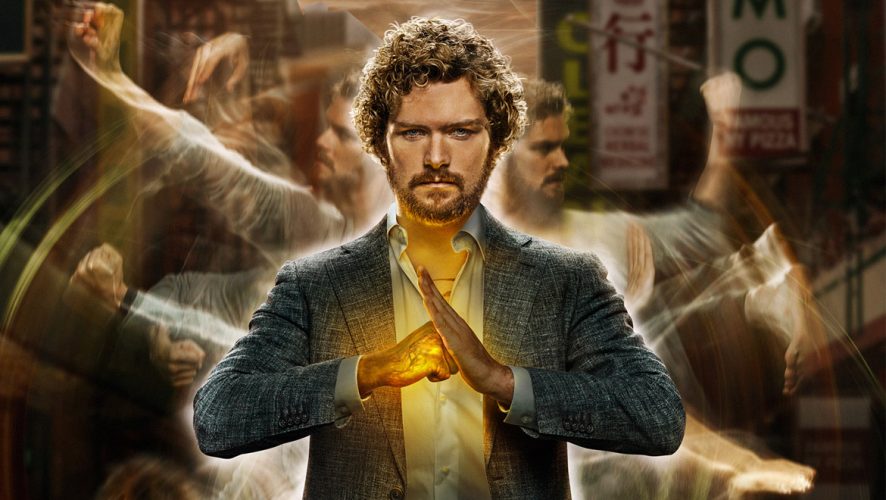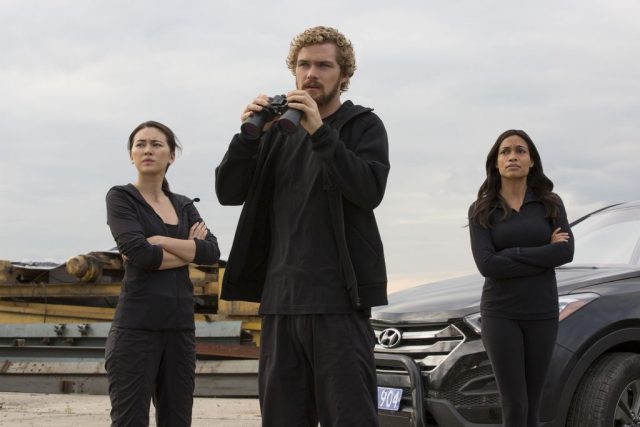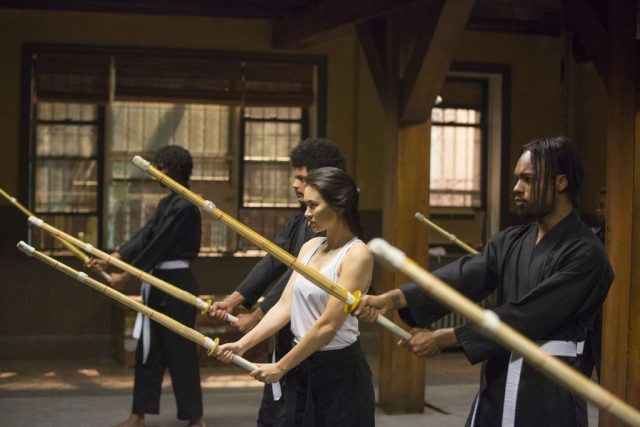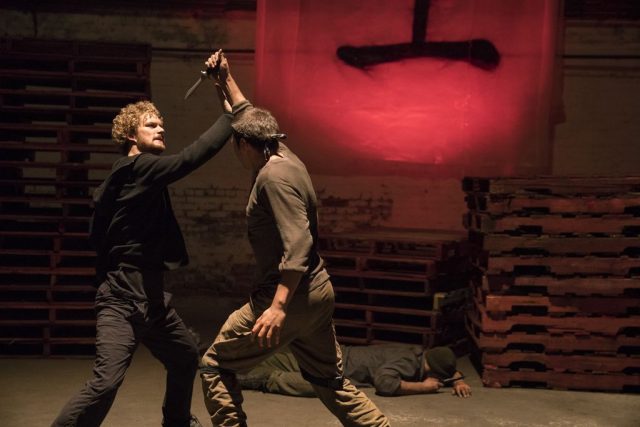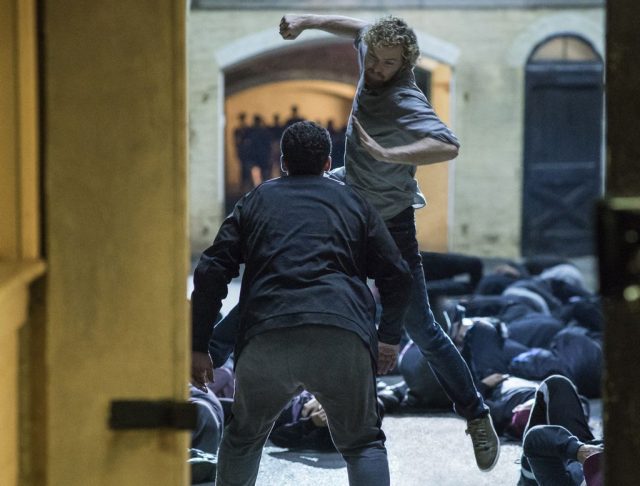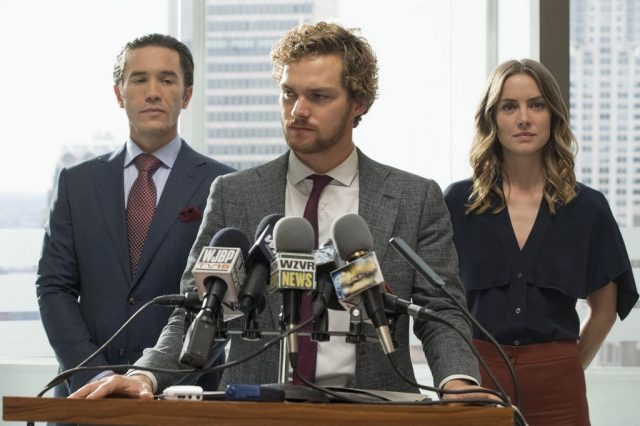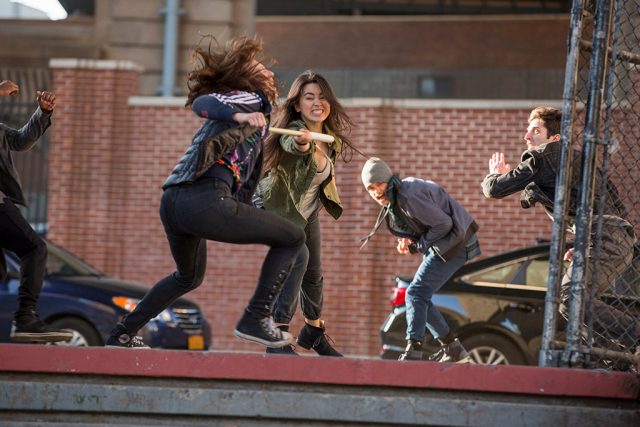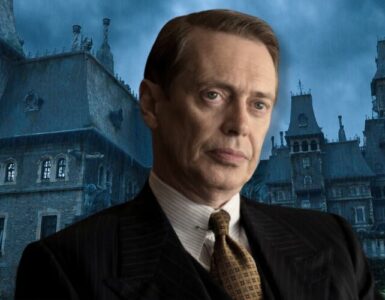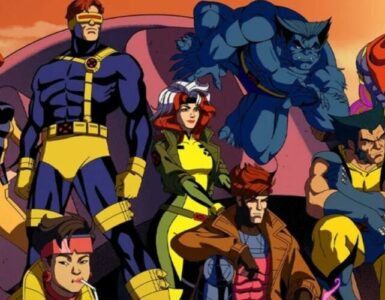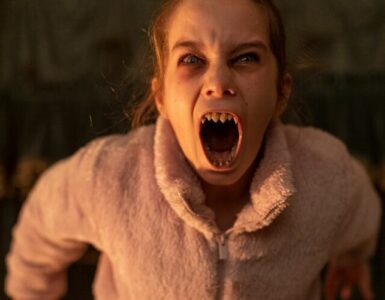This review is based on the first six episodes of Marvel’s Iron Fist, which Geek Culture was fortunate enough to have early access to.
In the rich history of the Marvel Universe, kung-fu hero Danny Rand, or the Iron Fist, is not a new creation. The latest Marvel Comics character to get his own TV series on Netflix has been around since the 1970s, and in many ways was a result of the fascination with all things not Western borne, and brought about by the hippie culture at that time.
Coincidentally, the same fascination with all things different from being white American also brought about the introduction of Doctor Strange, the latest Marvel Comics character to hit the big screen last year. But the adaptation of both these characters can not be any more different. No one remembers that in the early depiction of Doctor Strange, the master of the occult was depicted with an Asian look, though he has since been depicted as being white.
On the other hand, Danny Rand was influenced by the TV series Kung Fu, starring David Carradine, which was itself influenced by the chop-socky dalliance of western interest in the Chinese martial arts movie scene. Set to that background, the character of Danny Rand was, either intended or not, seen another “white saviour” gifted in all the ways of the East, from thinking like one to speaking like one, but he somehow still managed to be white.
Maybe something like that was acceptable in the 1970s, but obviously, not as much now, even though with Danny staying white, it does adhere to source material.
But somehow in all of this, I didn’t really care. As an eight-year-old comic book fan, I had access to my uncle’s stack of Power Man and Iron Fist comic books, and I used to read the hell out of them. Luke Cage and Danny Rand weren’t the biggest guys on the block, and they weren’t saving the universe by fighting Galactus or Mister Sinister or Thanos. They took down bad guys on the street, and the comics were like a Bruce Lee and blaxploitation film mixed up together, and poured out on paper. But somehow, it worked. The duo would be a predecessor to TV’s iconic A-team, where they helped those hard of luck against the neighbourhood loan sharks, drug dealers and others of that ilk.
Like any kid, it was all about when Danny would get around to using the Iron Fist, where he would channel all of his Chi into his hand, and turn it into a weapon of unstoppable force.
He could punch through cars and through walls, but most of the times, he would punch bad guys. Heck, I would be fine if he was punching Nazis. But then, he died. Just like that.
I was in shock and cried like you wouldn’t believe. The sudden inexplicable death of Iron Fist was shocking in its heyday, because of how random it was. The death didn’t happen as a payoff in some major story arc, and it didn’t take place at the culmination of some writer’s departure. He would come back in a few years of course, but I digress..
It was with this mindset that I came into previewing the first six episodes of Marvel’s Iron Fist, courtesy of Netflix. Having been a fan of Daredevil, Jessica Jones and Luke Cage, I was ready to tackle the last of The Defenders.
Don’t get me wrong. Back when I was reading Iron Fist, there were about as many Daredevil comics lying about as well, so I was expecting the same updating and shifting of focus in adapting the character from page to screen. It was done for Daredevil and Luke Cage, but I have to say at this stage, the jury is still out on whether Iron Fist can be as impressive as Daredevil was, when it first made its debut.
Iron Fist follows the story of Danny Rand, a child of a wealthy businessman, who ends up in the exotic, extra-dimensional city of Kun Lun as a child. He then returns to America with a mind now shaped by martial arts training, and Eastern philosophy. The TV series follows that thread in very much the same way and it’s almost a Tarzan story, except that Rand never grew up in trees and alongside apes. Left orphaned in a Shaolin-esque monastery, and to grow up in a state of perpetual ostracism because of his skin colour, he was forced to excel in a foreign environment. But what happened to Rand in Kun Lun? The comics have had decades to show what occurred, but if you watched the first six episodes, you would not know a thing since they never bothered.
Our series starts with Rand, played by Finn Jones (fun fact: also an orphan), returning to the US, almost a decade after his parents and him were declared dead in a plane crash in the Himalayas.
Rand simply walks into the massive building of Rand Corporation, asking for a meeting with his father’s business partner, Harold Meachum, only to be met with childhood acquaintances of his, Joy and Ward Meachum. Our Iron Fist is all shoeless and dressed in hemp clothing, wide eyed and innocent, and simply wanting to pick things up from where they were left off. Imagine his surprise when no one believes him when he tries to claim the 51% stake that his father had in the company. Life is never that simple and we know this because we are a smart audience that deserve better.
Needless to say, Danny then has to rely on the learning he has obtained from his time away, to combat the challenge of his enemies and the truth regarding the events surrounding his early misfortune. As an Iron Fist fan from the get go, this was the Marvel series I was most keen on getting to. And my critique would certainly err on the side of being easy on the series.
That said, the first six episodes of Iron Fist are a very rough watch. On the surface, the series has the same quality in production as the rest of the Netflix Marvel repertoire, but it distinctly lacks the X factor that distinguished the previous Marvel/Netflix series from each other. Heck, the story of a rich boy disappearing, only to come back years later to reclaim his heritage, is the backbone of Batman and Green Arrow, and the CW’s Arrow TV series handled the premise way better than Iron Fist.
And I have to say that this may be attributed to whom was assigned the task of showrunning this series.
I have read elsewhere that Iron Fist was intended to be lighter in tone from the rest of the other Marvel series, and there really would be nothing wrong with that. What grates here is that this production blatantly would have benefited from a couple of extra passes in all production departments, before the cameras started to roll.
The characters, from Joy, Ward and Danny, come across as incredibly stilted and badly written. Almost everyone, bar Danny in at least the first couple of episodes, is an immensely unlikeable douchebag, with nothing to lend them any dimensionality in the least. The writing and dialogue is not natural or flowing, and the character motivations behind their decisions can be baffling even at the best of times.
Case in point? Joy went from feeling sorry for Danny, to wanting to help him, to hating him, to wanting to sell him out, but back to helping him, in the first 5 episodes. Ward goes from douchebag to friend, and back to being evil across several episodes.
What is obvious is that the passion for the material by the person tasked to run the show is not evident. In this case, the buck stops on Scott Buck, former writer turned showrunner for Dexter Season 6, which was about two seasons into its downward spiral by this point. Despite the magical teachings and energy wielded by Danny, Iron Fist never seems to bring its own unique energy to the screen, unlike each of the other Netflix/Marvel shows, which carried a unique and indelible stamp from their respective showrunners. Daredevil brought a starkly violent, mob related tone to its proceedings, while Jessica Jones brought post victim trauma and female empowerment to the fore. Luke Cage brought so much of Harlem to its DNA, that the neighbourhood itself became a living, breathing part on proceedings.
With Iron Fist, things never seem to get out from second gear. Danny is young and innocent, we get it. But he can’t be that stupid, to keep stumbling into so many nasty situations. He has no grand plan for what he wants to do, and trouble seems to find him. Finn Jones might look the part, but he’s no Stephen Amell (TV’s Arrow). And when the fighting starts, you start to wonder why they cast someone with no background in martial arts, to play a master of the martial arts.
That said, there are some great performances peppered throughout the first six episodes. The always underrated David Wenham makes the most of what is afforded on the page, with his conniving turn as Harold Meachum. There is also a tertiary character brought over from another Marvel series that is still at her rapier-tongued best.
While Finn cannot fight, there is a twinkle in his eyes when he plays Rand, and that is a good thing.
And then you have Jessica Henwick playing Colleen Wing, the sensei of a Japanese Dojo struggling to make ends meet. She is surrounded by her inner city students, who are maybe only a few years younger than her. I challenge you to keep a straight face with her performance in this because as much as I tried to buy her in this, I couldn’t treat any of her screen time seriously.
The most incredible thing about her role is that she is supposed to be a top notch fighter, but she literally punches like a girl. Fans of kung-fu cinema have had the pleasure of seeing actual female fighters, such as Cynthia Rothrock, or trained dancers, such as Michelle Yeoh, fight and they are a joy to watch, because of the money shot. They kick as hard, punch as hard and jump with a vigour that tells you they are putting in an effort. They don’t use editing tricks to make you believe they are acting, and as audiences, we love them for it.
Colleen Wing comes across as a female Steven Seagal, swishing her fists and blade around, and barely making contact with her foes before they double over in pain. Yeah, right. Charlie Cox has shown us what Daredevil can do, but Henwick displays none of his tenacity and drive. She’s quite out of place in this series, and the weakest link in the show.
It did seem that by at the end of Episode 6, momentum was finally building up and the show looks to be hitting its stride beyond its incredibly clunky, drudging and tin-eared beginnings. I’m still hoping that the series nails the execution by the end.
I haven’t really touched on much in the way of what happens in the first six episodes because honestly, not much of note happens. It pretty much follows the narrative structure of Danny trusting someone he shouldn’t, Danny then getting in a pickle. Cue flashback sequence, and a cut away to two completely dislikable characters trying to out douche each other, to returning to Danny finding a way out of his predicament, by fisting or wang chung-ing his way out of it. Oh, and Colleen is in there. Somewhere.
And by Wang Chung (instead of Wing Chun), I do mean that the fight choreography in Iron Fist is certainly more dance like, than the hard-edged Daredevil bone crunching combat delivered a few years ago.
My take on the series so far is one of missed opportunities. There was a golden chance here to delve deeper into eastern philosophy, and the pacifist nature of thought behind most martial arts disciplines, and incorporate all of these into what goes on in the mind of Danny Rand. Instead, we get fortune cookie soundbites (I’m looking at you Colleen Wing), and Beastmaster rip-offs, of Danny visualising his mind’s eye as a hawk flying over the city.
If the martial arts is an intrinsic part of the character’s worlds here, maybe it would have been better to choreograph the combat with more style, such as close combat or MMA, rather that the current, paint by numbers, medium close up static camera shots, that convey little menace or interest.
And Buck, try to take a few more passes on the script, to make conversations less cringe inducing? Any one of these things could have helped. Iron Fist seems to be a project that was rushed out by a committee to make a deadline, rather than a project entrusted to someone genuinely passionate about the subject matter, in order to get the most out of it.
I remain an Iron Fist fan and am hoping that it does come around in the back 6. But at this stage, it seems like for that to happen, it would take a fighter of Jacky Chan, Jet Li or Donnie Yen’s caliber, to reach that last unbroken jar of alcohol, before the bad guys get to him before the credits start to roll.
I really want to love you so much, Iron Fist. Please stop punching me in the face.
GEEK REVIEW SCORE
Summary
When you pour water into a cup, it becomes the cup. When you pour water into a toilet bowl, it becomes the toilet, and you need to flush.
Overall
6/10-
Story - 6/10
6/10
-
Direction - 6/10
6/10
-
Characterisation - 6/10
6/10
-
Geek Satisfaction - 6/10
6/10
User Review
( votes)Mao is a tired remnant of the nineties slacker scene. Too intelligent for the grind, too lazy for real work and too romantic to give in to mediocrity, he pines after an old flame across the sea, while sharing his opinion on the counterweight continent with anyone who will listen. A straight man, he is ultimately doomed.

